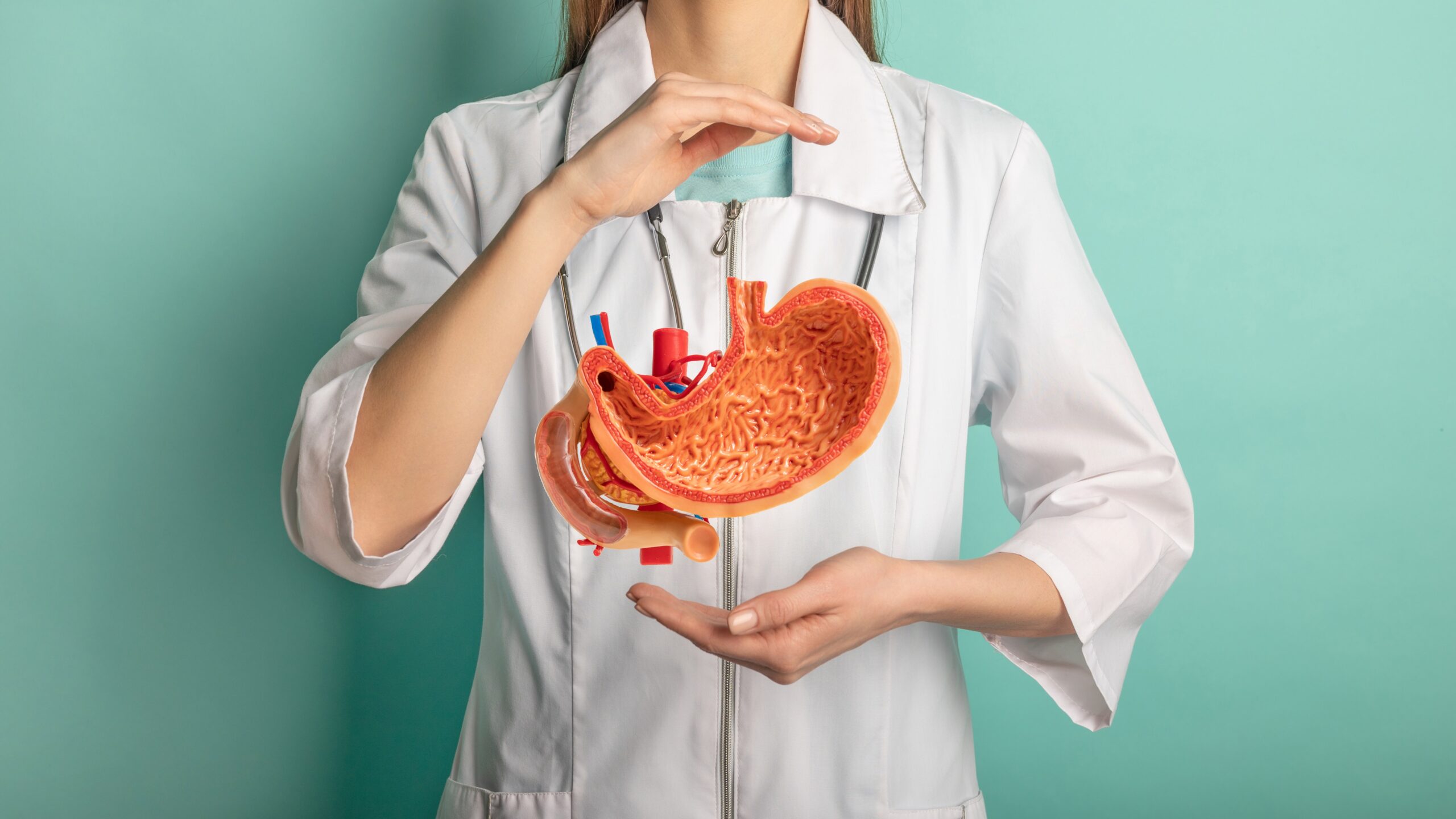

Your stomach is a sac-like organ that plays an important role in the digestive process.
Stomach cancer develops when stomach cells begin to grow and divide out of control and form masses, or tumors. Most stomach cancers – about 90 to 95 percent – begin in the gland cells of the mucosa, the innermost lining of the stomach. These cancers, called adenocarcinomas, are typically what are referred to when talking about stomach cancer.
Also called gastric cancer, stomach cancer accounts for about 1.5 percent of all new cancers diagnosed each year in the US. The American Cancer Society estimates that about 26,560 new cases of stomach cancer will be diagnosed in 2021, and about 11,180 American men and women will die from it this year.
Stomach cancer typically grows slowly over several years. Many people with early stage stomach cancer have no symptoms. In most cases, symptoms aren’t apparent until the cancer has advanced, and they are often mistaken for those of a common stomach virus.
Symptoms of stomach cancer include: a feeling of fullness after eating small meals; heartburn or indigestion; nausea and vomiting, which may contain blood; unexplained weight loss, loss of appetite, stomach pain above the navel; fatigue; bloating and difficulty swallowing.
Stomach cancer is caused by a genetic mutation in the cells of the stomach. Genes control how our cells function, and mutations in the genes of stomach cells cause the cells to grow rapidly and form tumors. Certain inherited cancer syndromes, such as hereditary diffuse gastric cancer (HDGC) and Lynch syndrome, have been linked to the development of stomach cancer as well.
In addition, certain factors have been identified that put you at increased risk for stomach cancer. These include: family history of stomach cancer, age (it’s more common in older adults), gender (it’s more common in men), smoking, obesity, blood type (it’s more common in people with Type A), alcohol abuse, infection from the Helicobacter pylori bacteria or Epstein-Barr virus, and a diet high in salty, smoked or pickled foods and low in fruits and vegetables.
To make a diagnosis of stomach cancer, your doctor will first review your medical history. The doctor will ask about your symptoms and background to determine if you have any risk factors. The doctor will also perform a physical exam and will likely order some diagnostic tests, which may include:
• Blood tests – These tests can reveal signs of cancer in your body
• Upper endoscopy – By placing an endoscope — a thin, flexible tube with a tiny camera attached to its end – down your throat, your doctor can examine your stomach and take samples of tumor cells for testing (biopsy).
• Upper GI series – You drink a chalky liquid with a substance called barium, which coats your stomach and makes it more visible on x-ray.
• CT scan – This imaging test creates detailed x-ray pictures of your stomach and surrounding tissues.
• Positron emission tomography (PET) scan – A special camera is used to take pictures of your stomach after you ingest a radioactive form of sugar, which collects in cancer cells.
• Endoscopic ultrasound – An ultrasound probe is attached to an endoscope to obtain images of your digestive tract, including your stomach, and nearby organs and tissues.
Treatment for stomach cancer depends on how far your cancer has spread and your overall health, as well as your preferences. Treatment options may include surgery, chemotherapy, radiation therapy, targeted therapy and immunotherapy.
Surgical procedures for stomach cancer include endoscopic mucosal resection, the removal of tumors from the mucosa through an endoscope, subtotal gastrectomy, the removal of part of the stomach, and total gastrectomy, the removal of the entire stomach.
Chemotherapy uses medication to stop rapidly growing cancer cells from dividing and multiplying. Radiation therapy uses high-energy rays to destroy cancer cells. These therapies may be used before surgery to shrink tumors or after surgery to kill any remaining cancer cells around the stomach.
Targeted therapy recognizes and attacks specific proteins produced by cancer cells. It affects fewer healthy cells than are destroyed by chemotherapy. Immunotherapy uses certain medicines to encourage your own immune system cells to attack and kill cancer cells.
The outlook for people with stomach cancer depends on how far the cancer has spread when it is diagnosed and treated. People whose cancer is found in its early stages have a much better prognosis than those with late-stage cancer.
If the cancer is localized to the stomach and can be removed with an endoscope, the five-year survival rate is greater than 90 percent. But if it has spread to areas surrounding the stomach, the five-year survival rate drops to 28 percent. If the stomach cancer has spread to areas beyond those surrounding the stomach, the five-year survival rate is 4 percent.
There’s no sure-fire way to prevent stomach cancer, but there are some steps you can take to reduce your risk for developing it:
• Get to and maintain a healthy weight.
• Get regular physical activity.
• Eat a diet high in fruits and vegetables and low in red meat and processed foods.
• Don’t smoke.
• Treat Helicobacter pylori infection
• Limit alcohol consumption.





Leave a Reply